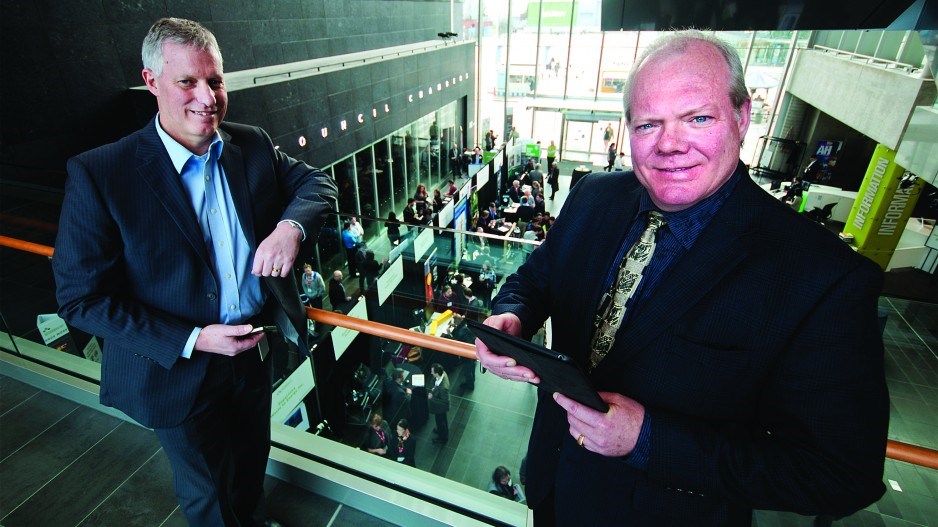Originally started by city staff as a way to expand the municipal government’s internal information technology system, the Open Data Catalogue now gives residents and business owners access to an unprecedented amount of information: economic indicators, business licences, commercial and industrial vacancy rates, population projections and availability of employment broken down into specific areas.
“One of the goals is to help the public sector solve difficult problems,” said Geoff Samson, the City of Surrey’s manager of information technology. “So there’s a variety of data sets that you can start seeing trends associated to particular business problems and that could be related to crime reduction. It could be related to experience with restaurants partnered with Fraser Health as it relates to health inspections.”
The goal is a transparent city in which as much information as possible is made available to the public – and in a technologically savvy format that lets users interact with the posted data sets.
“So the idea is instead of keeping the data internal to just city staff, by offering it to be transparent there’s a lot of different insights and decisions that could come forward. And that the city can collaborate with citizens in this regard and, just as importantly, with businesses.”
Samson said the catalogue (data.surrey.ca) is the largest offering of this type of information by any city in Canada. Users start at a dashboard page and can search by specific categories; for instance, business and economy or health and safety.
They can also search the most popular data sets. Right now it’s the website’s “property package,” which contains information about legal parcels, addresses, buildings, rights-of-way, easements, road centre lines, monuments, format lot lines and current plans for specific areas of the city. There’s also “recently updated,” in which users can browse interactive maps containing business licences as they’re issued. Samson hopes the end result is that citizens will be able to obtain usable data that translates to real-world benefits.
“What it could be is being able to see what type of business licensing activity is occurring in particular areas so you can start seeing the hot spots in the city. So that would be a huge part of it. And the types of developments – if it’s residential, commercial, what type of commercial – there’s a unique data set that would offer insights in that regard as well.”
Coun. Bruce Hayne said this is part of the city’s larger push to brand Surrey as a leader in the technology sector. The city was recently named one of the Top 7 intelligent communities of 2015 by New York-based think-tank Intelligent Community Forum (see story page 13). Surrey also recently wrapped up hosting the 2015 Greater Vancouver Clean Technology Expo and Championship.
“The more open and transparent cities are, the more they’re going to engage their community,” Hayne added. “And I think it’s becoming more of an expectation that the public has access to this, instead of just a nice thing to have.”
Hayne said they hope this will help decrease freedom-of-information requests, freeing up staff for other duties. He also touched on privacy issues and how the city will protect both the public and its own employees from breaches.
“This information isn’t just offered in a PDF format that’s not interactive. This is real-time data that you can play with and add and subtract to, so it really lets the user customize the type of information they want to see.”



